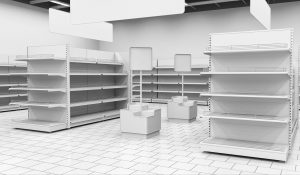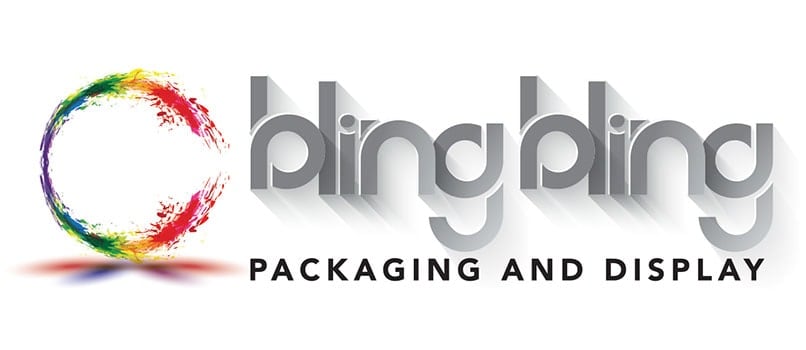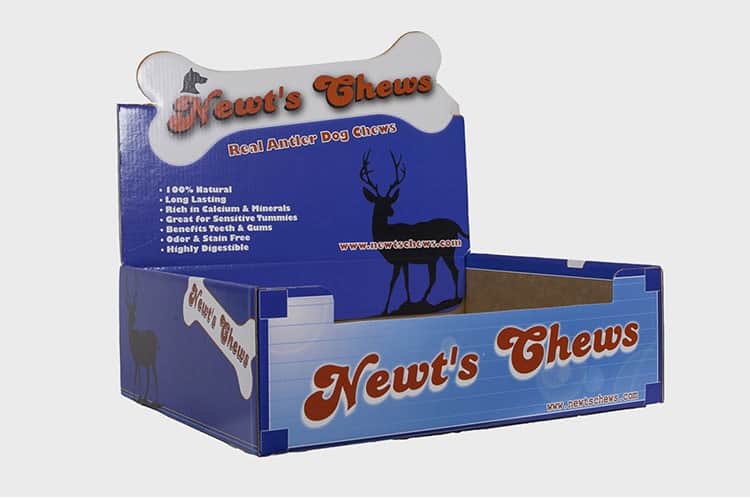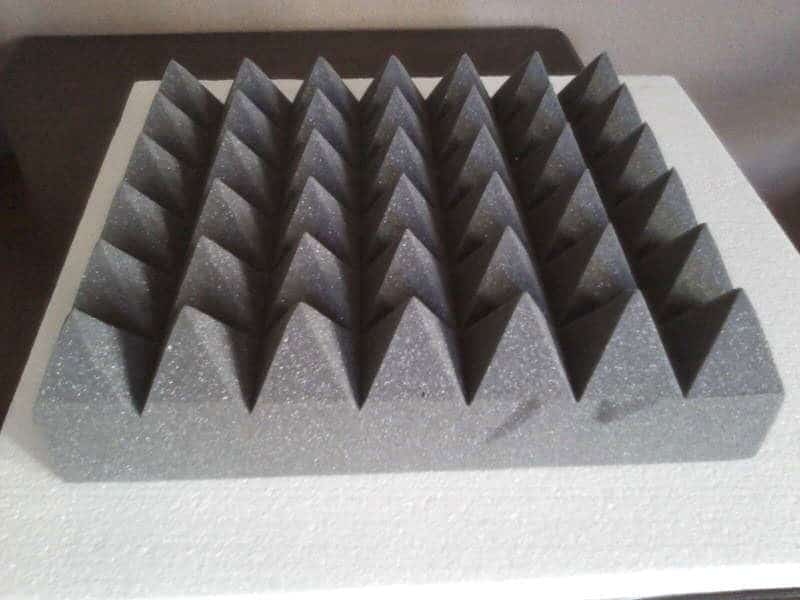A well-designed point-of-purchase (POP) display can be a powerful tool for promoting products at retail. Strategically placing products in an eye-catching presentation can capture potential customers’ attention and encourage impulse purchases. Additionally, with so much competition for consumer attention, a well-executed display can give products the edge they need to stand out and succeed.
At Bling Bling Packaging, we have provided exceptional packaging and display solutions since 1987. Our commitment to high-quality products and customer satisfaction has made us a trusted name in the industry. Moreover, our collections are designed to be retail-friendly and easy to assemble, ensuring the products catch the eye of potential customers.
What Are POP Displays?
POP displays are visual merchandising tools retailers utilize to exhibit products and entice customers at purchase. They come in various forms — including free-standing, countertop, and endcap displays — and are designed to capture shoppers’ attention and drive sales. Typically, they are created to be eye-catching and promote a specific product or promotion.
Here are the primary advantages of utilizing a POP display in a retail setting:
- Enhances brand visibility
- Increases sales
- Promotes new products or promotions
- Provides a competitive edge in retail environments
- Showcases products in an attractive and organized manner
- Increases customer engagement and satisfaction
Types of POP Displays
Each type of display offers a unique way to showcase products and promote brands. This makes it essential for retailers to choose the right style to meet their marketing goals. Listed below are the four most popular types:
Countertop Displays
Countertop displays are often placed on counters or tables to showcase small products and encourage impulse purchases. They are designed with visually appealing graphics and packaging that attract customers’ attention. Moreover, they are effective for small items like candy, gum, and cosmetics, which can be picked up easily and purchased immediately.
Digital Displays
Digital displays use screens or projections to create interactive and dynamic product presentations. They can be used to showcase product features, offer special deals or discounts, or provide educational content about the brand or product. They are also particularly suitable for retailers who sell high-tech or complex products, as they allow for detailed and interactive demonstrations.

Endcap Displays
Endcap displays are placed at the end of aisles in retail stores. They intend to showcase products and promotions in a highly visible location, increasing shoppers’ chances of being noticed. They can also be customized to fit various products, from electronics and home goods to snacks and beverages.

Floor Displays
Floor displays are positioned on the sales floor of a retail store. They are typically large and free-standing and can be used to showcase new or high-demand products. They can also be designed to match the store’s overall branding and visual merchandising strategy, creating a cohesive and inviting shopping environment.
Design Elements of a POP Display
A well-designed display can make all the difference in attracting customers and increasing sales. The following are several key design elements to consider during the design process:
-
Color
Color is an important design element as it can greatly impact the visibility and effectiveness of the display. Many different color schemes and combinations can be used, depending on the product and branding. Here are some examples:
- Complementary: Colors opposite each other on the color wheel, such as red and green, create a high-contrast and eye-catching effect.
- Analogous: Colors next to each other on the color wheel, such as blue and green, generate a harmonious and calming effect.
- Monochromatic: Using different shades and tones of the same color can create a sophisticated and cohesive look.
- Warm: Colors such as red, orange, and yellow create a feeling of warmth and energy and are often used to promote food and beverage products.
- Cool: Colors like blue, green, and purple create a feeling of calmness and relaxation and are utilized to promote health and wellness products.
-
Branding
Incorporating branding elements into the display can help to build brand recognition and promote brand loyalty. Furthermore, including the company’s logo and other features can create a sense of familiarity and trust with the customer. Additional branding elements include brand colors, font or typography, tone of voice, and personality.
-
Layout
The layout should be visually appealing, easy to navigate, and highlight the featured product or promotion. Some factors to consider when designing the form include the display’s size and shape, product placement, and branding elements. Balancing visual appeal and functionality is also essential to ensure the display effectively promotes the product.
-
Lighting
Lighting is a crucial design element that can significantly impact the effectiveness of a POP display. Proper lighting can highlight the product and draw attention to the display, making it more visually appealing and attractive. It can also create a mood or ambiance that aligns with the promoted product or brand.
Several lighting options are to consider when designing a display, including overhead lighting, spotlights, and backlights. The type of lighting used usually depends on the featured product and the desired effect. For example, cosmetic merchandise may benefit from soft, warm lighting that enhances the colors and textures of the product.
-
Materials
The choice of materials should be based on carefully considering the product, the target audience, and the overall aesthetic. Various materials — including metal, plastic, wood, and cardboard — are available, each with unique properties and benefits. For instance, metal displays are sturdy and durable, ideal for heavy or high-end products.
Plastic displays can be molded into various shapes and colors, while wood displays are often used for eco-friendly or natural products. In addition, the finish or texture can also impact the display’s visual appeal. A high-gloss finish can create a sleek and modern look, while a matte finish provides a more understated and natural appearance.
Best Practices for Designing POP Displays
Designing a successful display requires careful consideration and planning. Here are some best practices to keep in mind:
1. Keep It Simple
Customers can quickly understand the collection’s purpose and the product’s benefits when the design is simple. This can lead to increased sales and a positive impression of the brand. Conversely, a cluttered or overly complex display can overwhelm the customer and detract from the product.
2. Use Eye-Catching Visuals
Using bold colors, high-quality graphics, and attention-grabbing images can attract customers and increase engagement with the display. Incorporating eye-catching visuals can also make the exhibit stand out in a crowded retail environment and pique the interest of potential customers.
3. Prioritize Branding
When designing a display, it is important to ensure that the brand’s message and personality are consistent throughout. This can be achieved by using the brand’s fonts, colors, and logos prominently and consistently. Additionally, the messaging should align with the brand’s overall marketing strategy and target audience.
4. Consider the Customer Experience
Think about the customer’s perspective when designing the display. Consider factors such as the placement of the collection, the ease of product access, and the overall shopping experience. A well-designed display can make the shopping experience more enjoyable and encourage repeat business.
5. Test and Refine
After creating the display, testing it out in the retail environment and obtaining feedback from customers and store staff is crucial. This feedback can then be used to fine-tune the design and enhance future displays. Being open to iterating and improving can guarantee the success and effectiveness of the collection.


